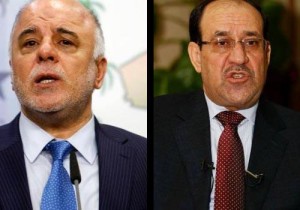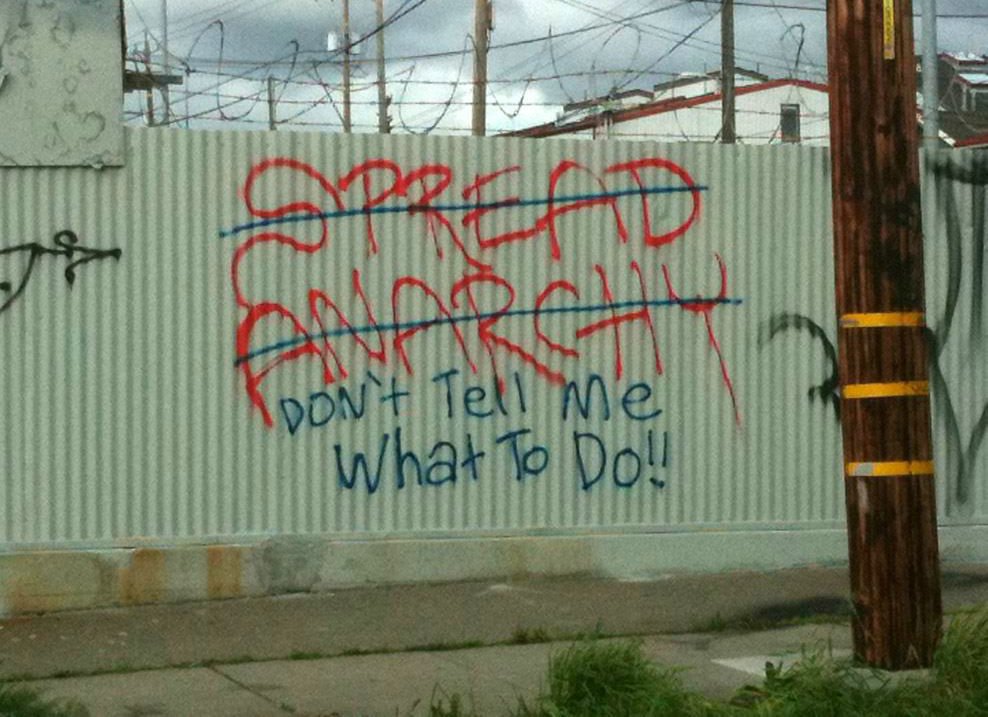1:50 EVOLUTION’S LATEST: TWEE…
I start this week’s call by noting an article in last Sunday’s New York Times style section entitled: The Millennials are Generation Nice, a psychographic snapshot of the 50 million Americans between the ages of 18 and 29. This latest generation of adults, likely mirrored by those in other developed countries, are characterized by a declining interest in materialism and an increased dedication to social purpose, vegetarianism and optimism.
The article concludes, “Taken together these habits and tastes look less like narcissism than communalism. And its highest value isn’t self-promotion, but its opposite, empathy — and open-minded and -hearted connection to others.”
This view supports the thesis of a book I’ve been reading, Twee, The Gentle Revolution in Music, Books, Television, Fashion and Film, by Mark Spitz. Using the sometimes derogatory word “twee”, which means “excessively sweet or sentimental,” Spitz writes that “Twee can be similarly liberating from the pressure to be cool, swaggering, aggressively macho, and old at heart.”
James Parker, in the Atlantic, describes it as “The strangely persistent modern sensibility that fructifies in the props departments of Wes Anderson movies, tapers into the waxed mustache-ends of young Brooklynites on bicycles, and detonates in a yeasty whiff every time someone pops open a microbrewed beer.”
Spitz identifies several markers of the Twee aesthetic:
- Beauty over ugliness.
- A sharp, almost incapacitating awareness of darkness, death, and cruelty, which clashes with a steadfast focus on our essential goodness.
- A tether to childhood and its attendant innocence and lack of greed.
- The utter dispensing with of “cool” as it’s conventionally known, often in favor of a kind of fetishization of the nerd, the geek, the dork, the virgin.
- A healthy suspicion of adulthood.
- An interest in sex but a wariness and shyness when it comes to the deed.
- A lust for knowledge, whether it’s the sequence of an album, the supporting players in an old Hal Ashby or Robert Altman film, the lesser-known Judy Blume books, or how to grow the perfect purple, Italian, or Chinese eggplant or orange cauliflower.
- The cultivation of a passion project, whether it’s a band, a zine, an Indie film, a website, or a food or clothing company. Whatever it is, in the eye of the Twee it is a force of good and something to live for.
To me these orientations suggest a consciousness that is differentiating itself from the cynicism, irony and malaise of the post-modern altitude of development. Are we seeing the first signs of a new integral aesthetic? I think so, especially in the emphasis on basic goodness, as well as the impulse to create a personal project that contributes to the world.
12:45 A GOOD WEEK FOR THE OBAMA DOCTRINE
 Despite pundits left and right decrying Obama’s handling of ISIS extremists in Iraq, we have seen an enormously positive development in the situation as a direct result of what Obama has done and not done. I’m talking about the peaceful and legal replacement of Iraqi Prime Minister Nouri al-Maliki by the new Prime Minister Haidar al-Abadi.
Despite pundits left and right decrying Obama’s handling of ISIS extremists in Iraq, we have seen an enormously positive development in the situation as a direct result of what Obama has done and not done. I’m talking about the peaceful and legal replacement of Iraqi Prime Minister Nouri al-Maliki by the new Prime Minister Haidar al-Abadi.
Maliki did not go easily and for a few days it looked as if he may even resort to attempting a military coup to maintain power. But in the end he acquiesced and even stood by the new Prime Minister in a demonstration of a constitutional passing of power that is remarkable in that part of the world.
In his disastrous last years in office Maliki presided over a Shiite domination of the country, precipitating a ratcheting down of Iraq from a fledgling modern altitude to a neo-tribal one, and creating rifts that enabled ISIS to gain a foothold in the Sunni sectors of the country. Obama was criticized for “letting this happen”, criticism he pushed back on in his recent interview with Thomas Friedman:
The reason that we did not just start taking a bunch of airstrikes all across Iraq as soon as ISIL came in was because that would have taken the pressure off of Prime Minister Nuri al-Maliki. That only would have encouraged, he said, Maliki and other Shiites to think: “We don’t actually have to make compromises. We don’t have to make any decisions. We don’t have to go through the difficult process of figuring out what we’ve done wrong in the past. All we have to do is let the Americans bail us out again. And we can go about business as usual.”
So the Iraqi people and their representatives chose a different course, and a new leader who is far more equipped to create a pluralistic society that can protect itself from the impulses of its least civilized populations. Here’s how Ali Khedery, who served for seven years as advisor to the American ambassadors in Iraq, describes the new prime minister in last Sunday’s New York Times:
If anyone has the potential to unite Iraq and hold it together in the face of ISIS terrorism and Arabian meddling, it is Mr. Abadi. In a society where name and upbringing count for a lot, he comes from a respected Baghdad family and was raised in an upscale neighborhood. He studied at one of the capital’s best high schools, earned a degree from one of its top universities and later received a doctorate in engineering in Britain.
While Mr. Maliki [the deposed Prime Minister] spent his years in exile in Iran and Syria and earned degrees and Islamic studies and Arabic literature, Mr. Abadi, a fluent English speaker, worked his own way through his long and costly studies abroad. In meetings over the past decade, Mr. Abadi always impressed me and other American diplomats with his self-effacing humor, humility, willingness to listen and ability to compromise — extremely rare traits among the Iraqi political elite and precisely the characteristics that are needed to help heal the wounds Iraqis sustained under Saddam Hussein and Mr. Maliki.
Indeed, for the first time since 2003, Iraq’s top three leaders, the Shiite Mr. Abadi, the Kurdish president, Mr. Masum, and the Parliament’s Sunni speaker, Mr. Jubouri, have all emerged from Iraq’s Parliament, where they cooperated over the past decade to pass legislation and defuse numerous crises.
Societies (and individuals) need to solve their problems themselves. When America is there to exert our military force people begin to rely on it. They may resent us for it but they can also become comfortable with it, never getting to experience that “oh shit” moment where they realize, “okay, we really have to do this ourselves.”
27:28 FRACTURES IN FERGUSON
The last story I address on the call is the civil strife that has been arising in the town of Ferguson, Missouri in the wake of the shooting of a young 18-year-old, unarmed black man by white police officers.
Despite the predictable emphasis by the left-leaning media on the racial and civil aspects of the tragedy, and the right-leading media’s emphasis on the law and order aspects, I notice three signs of a new, more integrated awareness arising in our cultural mind. I expand on them on the call.
1. America’s police are over-militarized. And their consciousness is not keeping up with the hardware, as we saw in the Ferguson police department’s disproportionate response to the initial protests. There is something that is deeply repulsive to the modern psyche about facing a lineup of masked and helmeted shock troops arrayed on top of an armed personnel carrier. Humanity has spent too many bloody centuries overcoming the tyranny of the king’s men and the dictator’s secret police. Yet we also want to use the latest technologies to keep people — including police people — safe. One of the great evolutionary challenges of our time is to deal with the problem of modern weaponry in the hands of a pre-modern wielder.
2. There is still a heartbreaking and increasingly intolerable divide between large portions of the African-American population and mainstream society. We can be encouraged by the substantial strides African-Americans have made into mainstream society, including the rise of a large black middle class as well as the double election of an African-American president. But fifty years after the civil rights act and despite decades of various wars on poverty we are still a long way off from true racial equality. This is a four quadrant affair that requires a four quadrant solution.
3. The struggle in Ferguson was not just racial but developmental. Yes, the igniting events, the shooting of Michael Brown and the subsequent demonstrations, exposed deep tensions between a white police structure and the majority black population. But it grew into a struggle that was more fundamental: between people at or above the traditionalist altitude of development (amber altitude) and those below (red altitude). One key difference between these two structures of development is that people above amber are law-abiding citizens and those below are not. In the days after the initial demonstrations in Ferguson many people flooded into the area to protest legally and peacefully, but some from both within and outside the community came just for the mayhem. Citizens of both races supported the former and called out the latter. One of my favorite scenes was of African-American people, organized by community churches, helping to clean up stores (owned by white people) that were damaged by looters the previous night’s riots.
I suspect that we will learn a lot from the Ferguson drama that will motivate and inform a more rich, intelligent, loving and effective response to the stubborn problems of racial inequality in America.
40:25 QUESTIONS FROM LISTENERS
For the last twenty minutes we talk about all kinds of stuff. Have a listen. Till next week, keep it integral!
Podcast: Download
Subscribe: Google Podcasts | RSS







Wow! Maybe FINALLY I can join live!!
All the topics and the commentary are superb.
I just want to thank you–for being a voice of reason in the noisy jungle. You make my day—-
Hi there, I really like part 1 of your call about the “Twee” generation. Also, the part on the Obama Doctrine is interesting and hopeful. The only piece that I am wondering about: If this is a conscious doctrine, to let others work out their conflicts, then how does the constant feeding of modern weaponry into pre-modern conflict zones work into this? It seems that this would completely destroy most potential benefits of such a strategy ( for example: http://thedailyshow.cc.com/videos/yt7an7/automatics-for-the-people ) Do you believe that Obama simply does not have the political power to reduce this constant flow of weapons (or stop it altogether)? Otherwise, how does this play into his strategy? (I know, things are complex and it’s probably not easy to stop something that has been an “American tradition” for so long…but some effort in this direction would be necessary, it seems, and none seems to be visible–at least as far as I can tell.)
Thanks Jeff ~ Always a Pleasure to Plug-In